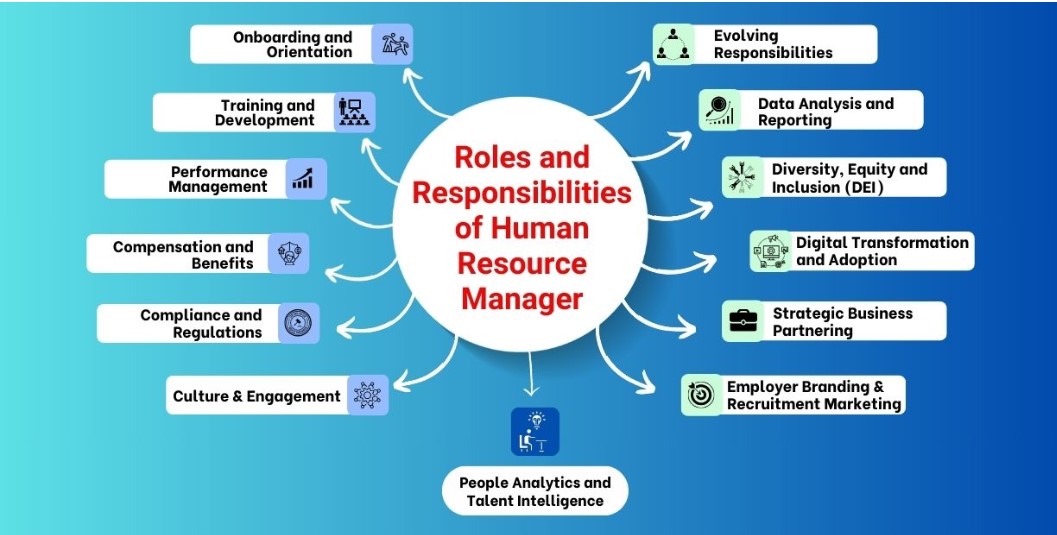Human Resources Careers Unveiled: Roles, Duties, and Advantages
In the intricate machinery of modern enterprise, the Human Resources (HR) domain serves as the beating heart—pulsating with the rhythms of recruitment, policy, and people-centric strategy. Beyond paperwork and procedures, HR orchestrates the human symphony that propels organizations forward. Whether navigating conflict resolution or cultivating culture, HR professionals stand as indispensable stewards of organizational harmony.
This piece deciphers the many dimensions of HR work: what it entails, the distinct positions it comprises, and the array of benefits that come with this people-powered profession.
What Is a Career in Human Resources?
It encapsulates a wide spectrum of responsibilities—ranging from sourcing new talent and fostering employee development, to navigating labor laws and shaping internal culture. HR professionals don’t just “manage” staff—they enable engagement, loyalty, and performance across every echelon of the workforce.
Whether embedded in a global firm or a local nonprofit, HR practitioners ensure smooth communication, fair processes, and strategic workforce alignment.
- HR Generalist
A jack-of-all-trades, HR generalists juggle recruiting, benefits coordination, compliance, and employee engagement—making them pivotal to day-to-day HR operations. - HR Manager
Steering the department, HR Managers oversee policy adherence, strategic planning, and departmental leadership while advocating for employee welfare and business alignment. - Talent Acquisition / Recruiter
Focused on hiring the best, recruiters craft job descriptions, vet candidates, run interviews, and onboard talent—setting the tone for long-term success. - Learning & Development Specialist
These professionals engineer training modules, workshops, and skill-enhancement initiatives to ensure employee growth and productivity evolution. - Compensation & Benefits Manager
From salary bands to retirement perks, these specialists design attractive remuneration frameworks that reward and retain talent. - Employee Relations Advisor
When conflicts flare or grievances surface, these specialists step in—balancing empathy with compliance to maintain workplace peace. - HR Business Partner (HRBP)
Operating alongside leadership, HRBPs align talent strategy with business goals, advising on organizational change and strategic planning. - HR Analyst
With data as their compass, analysts assess performance metrics, turnover trends, and training ROI to inform evidence-backed HR decisions. - Diversity, Equity & Inclusion (DEI) Officer
DEI officers champion inclusive practices and advocate for equitable representation, ensuring every voice in the workforce is heard and valued.
Core Responsibilities of HR Professionals
Across all roles, several foundational duties remain central to HR:
Recruitment & Talent Sourcing
Onboarding & Orientation Programs
Professional Development & Upskilling
Performance Appraisal Systems
Salary, Bonuses & Benefits Administration
Labor Law Adherence & Policy Governance
Conflict Mediation & Employee Counseling
Strategic HR Planning & Change Management
Advantages of Pursuing an HR Career
- Robust Career Stability
As every enterprise depends on talent, the need for HR experts remains strong across all industries—from tech startups to healthcare conglomerates. - Versatile Career Paths
The field is broad and flexible. Whether your interests lean toward analytics, coaching, legal compliance, or employee wellbeing, HR offers niches for varied strengths. - Purpose-Driven Impact
HR doesn’t just manage systems—it shapes the employee journey. By cultivating morale and fairness, HR leaves lasting imprints on both individuals and corporate culture. - Pathways to Seniority
Ambitious professionals can ascend to executive roles like Director of HR or CHRO (Chief Human Resources Officer), guiding talent strategy at the C-suite level. - Financial Rewards
While entry roles may start modestly, specialties like compensation design, labor law, or executive recruitment are financially lucrative. Senior HR leaders often earn top-tier salaries. - Work That Evolves Daily
From strategic hires to urgent conflict mediation, HR’s day-to-day is never monotonous. The field demands agility, foresight, and resilience—perfect for those who thrive on challenge. - Sharpened Transferable Skills
The communication, analytical, and conflict-resolution skills honed in HR translate seamlessly to other leadership or consulting roles. - Balance & Flexibility
Many HR positions offer consistent hours, generous leave policies, and the option to work hybrid or remotely—making for a sustainable work-life blend.
How to Embark on an HR Career
- Academic Foundation
Advanced roles may require a Master’s in HR or Organizational Development.
- Professional Certifications
Earning credentials boosts marketability. Top choices include:
SHRM-CP – Society for Human Resource Management
PHR/SPHR – Professional (and Senior) in Human Resources
- Professional Networking
Join HR associations, attend industry panels, and stay engaged with HR communities on platforms like LinkedIn. - Lifelong Learning
Stay abreast of HR tech, labor laws, and evolving workplace trends through webinars, courses, and HR literature.
Conclusion: The Human Element of Business Excellence
Human Resources is more than a corporate function—it’s a mission of cultivating growth, fostering fairness, and engineering environments where people thrive. It marries the analytical with the empathetic, the strategic with the interpersonal.
For those with a keen sense of justice, a head for planning, and a heart for people, HR offers a purposeful path. Whether championing diversity, orchestrating training, or managing workforce transitions, HR professionals shape the culture and future of every organization they serve.
If you’re drawn to meaningful work that drives both individuals and businesses to flourish, HR may be your calling.
❓ FAQs
1. What qualifications are needed for HR jobs?
Typically, a degree in HR or business, plus certifications like SHRM or HRCI, is recommended.
2. Is HR a good career path?
Yes! It offers growth, job security, good pay, and the chance to make a real impact.
3. Can HR professionals work remotely?
Absolutely. Many HR tasks, including recruitment and training, can be done online.
4. What is the difference between HR generalist and HR specialist?
Generalists handle a variety of tasks; specialists focus on one area like recruitment or benefits.
5. How can I transition into an HR career?
Start with an entry-level role, take relevant courses, and get certified to boost your chances.
